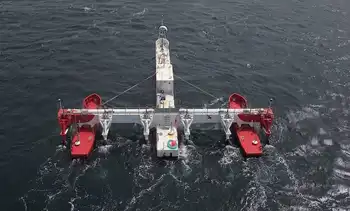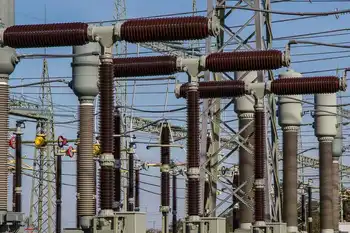Tory insider defends job with Hydro One
- Michael Gourley, a Tory insider who received $105,000 from Hydro One under an untendered contract for which the utility received only a one-page written record, says he worked hard for his pay because he also presented the company with oral advice.
Mr. Gourley, a close associate of former Ontario premier Ernie Eves and a onetime deputy finance minister, was hired in late 2001 to advise the utility's executives on how the electricity-grid operator could best be privatized, then a policy under consideration by the Progressive Conservative government.
This involved Mr. Gourley attending meetings once a week with senior Hydro One executives over a five-month period where they discussed financial details of the transaction. He said he also made himself available at other times for phone calls from company officials.
“Hydro One certainly received value for money, reflecting my experience and expertise over the years,” Mr. Gourley said in a recent interview. He said he offered opinions on such topics as the effect that privatization would have on Hydro One's credit rating and the pros and cons of how to organize the sale of the company's stock, among other items.
Mr. Gourley was part of a small group of top Progressive Conservatives who shared $5.6-million in controversial untendered contracts at Hydro One to advise on privatization. The sale was announced by former premier Mike Harris in late 2001 as one of his last major actions in government, but it was then shelved by Mr. Eves, his successor.
The other Tories who worked on the contracts were Leslie Noble, Paul Rhodes, Tom Long and John Toogood. Mr. Toogood was a policy adviser to Mr. Harris and the others were all senior officials on various Conservative election campaigns.
Records obtained by The Globe and Mail under Freedom of Information Act requests indicate the party insiders produced very few written records for the payments, which began in 1999 when the provincial cabinet started to study the privatization. If it had occurred, it would have been the largest such sale in Canadian history.
Among the records were instructions on how the chairman of Hydro One, Sir Graham Day, should feign flattery of Mr. Harris to encourage the premier to agree with the sale, as well as advice by Mr. Long and Mr. Toogood that the utility's shares should be deliberately underpriced so that investors would make easy money purchasing the stock.
In the memo explaining this tactic, the men said they thought giving investors a good deal was more important than “delivering an extra few hundred million to the treasury.”
Hydro One officials have distanced themselves from the contracts, which were obtained after the new Liberal government removed a gag order the previous Conservative government had placed on the files.
Related News

Duke Energy reaffirms capital investments in renewables and grid projects to deliver cleaner energy, economic growth
CHARLOTTE - Duke Energy says that the company will continue advancing its ambitious clean energy goals without the Atlantic Coast Pipeline (ACP) by investing in renewables, battery storage, energy efficiency programs and grid projects.
Duke Energy, the nation's largest electric utility, unveils its new logo. (PRNewsFoto/Duke Energy) (PRNewsfoto/Duke Energy)
Duke Energy's $56 billion capital investment plan will deliver significant customer benefits and create jobs at a time when policymakers at all levels are looking for ways to rebuild the economy in 2020 and beyond. These investments will deliver cleaner energy for customers and communities while enhancing the energy grid to provide greater…




